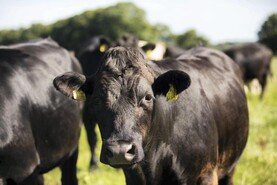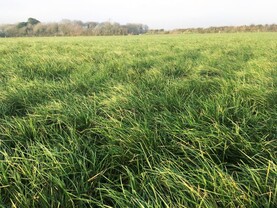Live exports have slowed significantly in the last two weeks.
There are a number of factors contributing to fewer numbers leaving the country but the main one is transport restrictions as extreme temperatures continue to grip many continental European countries.
The number of cattle exported live in the week ending 20 July 2019 was recorded at 858 head, a significant reduction from the 2,259 head in the previous week. This figure could be even lower when figures for this week are published.
The main market was Northern Ireland, with 329 head crossing the border in the week ending 20 July. This can be broken down into 68 beef-sired calves and 62 dairy-sired calves, 39 beef sired and 19 dairy yearlings, 105 beef and 59 dairy animals aged 24 to 30 months and finally 24 beef cattle aged over 30 months and 25 dairy stock.
Spain
Spain was the next market in terms of volumes moving but the 216 beef calves and 21 dairy calves were well down on the 1,567 exported live in the previous week. Italy imported 179 Irish-born cattle, with the majority being bulls. There were 73 beef bulls in the six- to 12-month age bracket, 61 beef bulls aged 12 to 18 months along with 13 weanling heifers and 26 yearling heifers.
The final destination was England, with 113 mainly dairy stock exported. There were 54 dairy heifers in the 12- to 18-month age bracket, 12 in the 24- to 30-month age bracket and 47 females aged over 30 months.
Year-on-year increase
Live exports have recorded improved performance in 2019, with 49,058 more animals leaving Ireland up to the week ending 20 July. As detailed in Table 1, this was underpinned by 39,027 more calves exported.
The increase in calf exports has been driven by greater demand in the Dutch market with total volumes increasing 34,875 head to 81,866. Exports to Italy have also been boosted by higher calf exports, with total numbers rising 7,134 head to reach 24,132. There are also notable increases to Spain, with 7,419 more cattle exported to reach a total of 74,295, while 5,281 calves and cattle have been exported to Poland.
Read more
Drought-stricken farmers offered supports as temperatures soar
Bull beef in focus on Tullamore Farm
Live exports have slowed significantly in the last two weeks.
There are a number of factors contributing to fewer numbers leaving the country but the main one is transport restrictions as extreme temperatures continue to grip many continental European countries.
The number of cattle exported live in the week ending 20 July 2019 was recorded at 858 head, a significant reduction from the 2,259 head in the previous week. This figure could be even lower when figures for this week are published.
The main market was Northern Ireland, with 329 head crossing the border in the week ending 20 July. This can be broken down into 68 beef-sired calves and 62 dairy-sired calves, 39 beef sired and 19 dairy yearlings, 105 beef and 59 dairy animals aged 24 to 30 months and finally 24 beef cattle aged over 30 months and 25 dairy stock.
Spain
Spain was the next market in terms of volumes moving but the 216 beef calves and 21 dairy calves were well down on the 1,567 exported live in the previous week. Italy imported 179 Irish-born cattle, with the majority being bulls. There were 73 beef bulls in the six- to 12-month age bracket, 61 beef bulls aged 12 to 18 months along with 13 weanling heifers and 26 yearling heifers.
The final destination was England, with 113 mainly dairy stock exported. There were 54 dairy heifers in the 12- to 18-month age bracket, 12 in the 24- to 30-month age bracket and 47 females aged over 30 months.
Year-on-year increase
Live exports have recorded improved performance in 2019, with 49,058 more animals leaving Ireland up to the week ending 20 July. As detailed in Table 1, this was underpinned by 39,027 more calves exported.
The increase in calf exports has been driven by greater demand in the Dutch market with total volumes increasing 34,875 head to 81,866. Exports to Italy have also been boosted by higher calf exports, with total numbers rising 7,134 head to reach 24,132. There are also notable increases to Spain, with 7,419 more cattle exported to reach a total of 74,295, while 5,281 calves and cattle have been exported to Poland.
Read more
Drought-stricken farmers offered supports as temperatures soar
Bull beef in focus on Tullamore Farm






 This is a subscriber-only article
This is a subscriber-only article









SHARING OPTIONS: